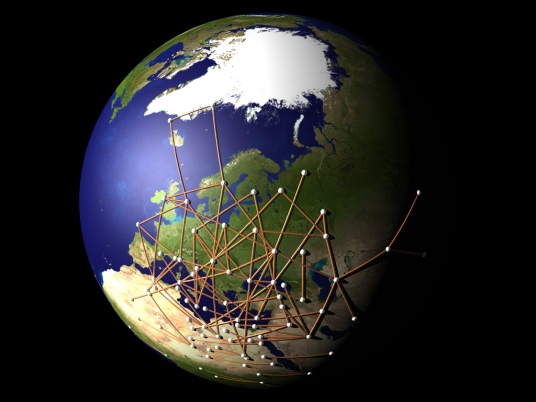Extending Your Professional Consultation Network with Social Media: How It Saved a Life
A while back I wrote about why I’m here, that is, why I use social media. In that post, I talked primarily about the value of hearing from a broad network of people about ideas that are outside my discipline. Well today I read about a university colleague who used Twitter another way, to seek fast consultation from colleagues around the globe. It’s a wonderful story–here’s an excerpt:
By Christina Frangou
Chicago—Late one night in 2011, University of Buffalo pediatric surgeon Philip Glick, MD, received a call from his resident on call, telling him that a child who had been on extracorporeal membrane oxygenation (ECMO) for several days, now had air tracking back through the venous cannula.
Dr. Glick, a professor of surgery, pediatrics, OB/GYN and management, rushed to the pediatric ICU and his team gathered around the child’s bed. Everyone was baffled; no one, including Dr. Glick, had seen anything like it. The only option he could come up with was to turn off the ventilator, as the child also was on heart-lung bypass support.
“It was 4:30 in the morning,” he said, recounting the story during a session of the 2012 Clinical Congress of the American College of Surgeons (ACS). “The sun was about to come up. I was very tired. I called the ECMO hotline; no explanation. I did a PubMed search; nothing published. Lastly, I sent out a tweet asking if anyone in the universe had had a patient with pertussis on ECMO who had what I was describing as a pulmonary bronchial pulmonary artery fistula.”
When Dr. Glick woke up a few hours later, he’d received an answer from a surgeon from the Karolinska Institute in Sweden. “He had a series of patients, yet to be published, with pertussis who had similar experiences and he said ‘what you may have is a patient with a totally necrotic lung.’”
That is a real-life example of how Twitter can help surgeons access information not readily available from traditional sources, Dr. Glick said. “This surgeon hadn’t even published this information yet. He knew exactly what was wrong, exactly what I should do and I shared it with my patient and [the child’s] family who needed it.”
via General Surgery News – Is It Time To Get on Twitter?
What a wonderful example of the value of using Twitter for a Professional Consultation Network (PCN). And it made me proud to be at the same university with a physician who used social media this way. I would love to tell you that there are many faculty here at the University at Buffalo who use Twitter professionally, but it’s simply not the case. How fortunate that this child had Dr. Glick — a globally-connected surgeon — as his doctor.
I would love to hear some other examples of times that you have used Twitter (or some other form of social media) as your PCN. I think our collective examples might provide a great rationale to colleagues about the value of this medium in our professional lives.
Note: I have since spoken to Dr. Glick and confirmed this remarkable story–he credits his students with keeping him in touch with the need to be on social media.
Photo, Global Network, courtesy of fedcomite

Thank you, Nancy. This was such a wonderful story for you to share. It illustrates so beautifully and powerfully how twitter can be used amongst professionals in medicine (and other fields) to benefit us all.
LikeLike
You’re very welcome, Dorlee. It was such a warm-hearted story that I had to share it . It’s a great model for all of us.
LikeLike
I love how this can be used to teach professionals who are still Leary of social media how it can be an asset to their practice.
LikeLike
Rachel, I think you’ve nailed it. It really is a great teachable moment. What I loved about how the doctor got the help is he just phrased the question based on the case, but he didn’t disclose protected information. I think we have that option much more than people realize.
LikeLike
Pingback: Social Work in the 21st Century by Dr. Nancy Smyth Part of @SWSCmedia #WSWDay Series | Social Work / Social Care & Media
Pingback: Twitter 101 | Virtual Connections
Pingback: How strong is your personal learning network? Take this quiz to find out. | Virtual Connections